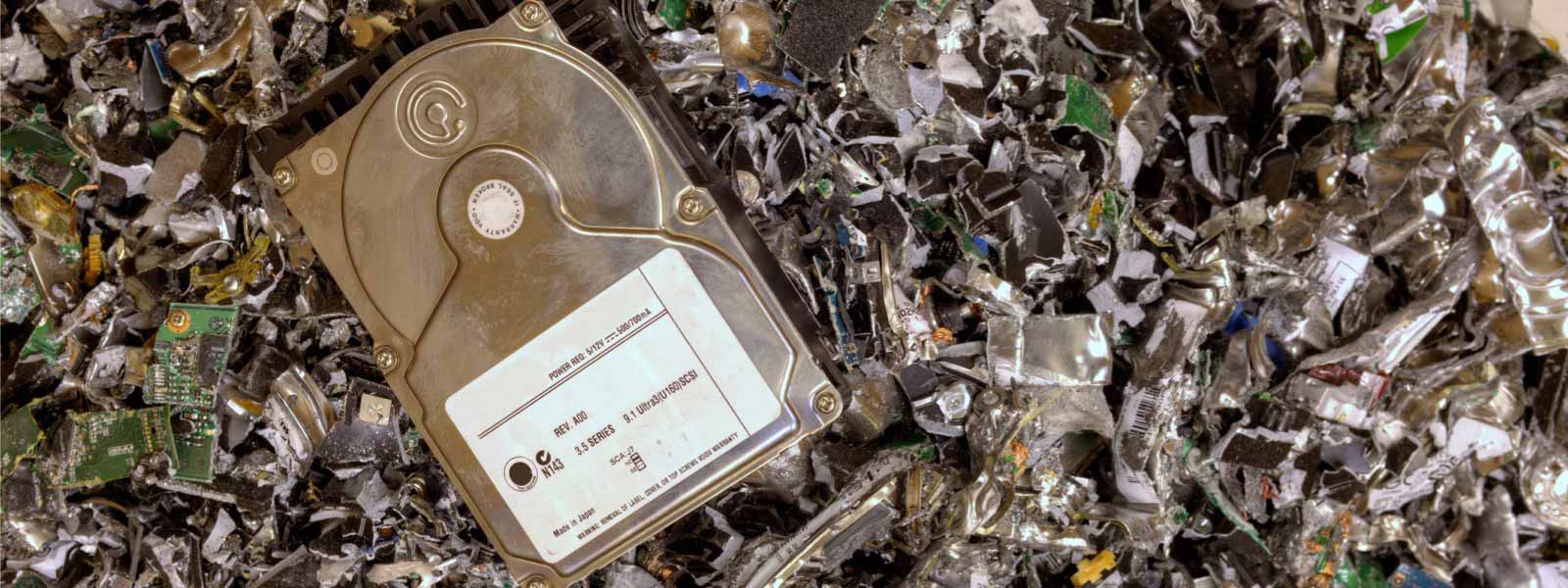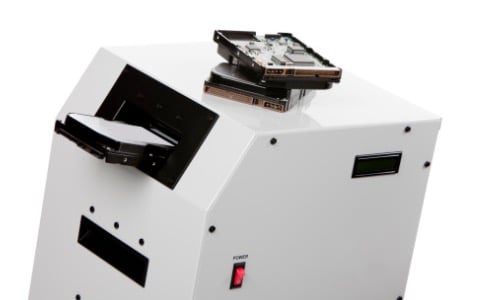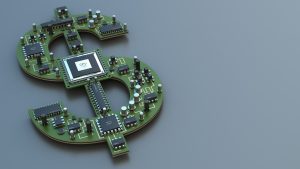
A Definitive Guide To Recycle Your IT Assets For Cash In Canada
It is not at all recommended to throw used IT assets like monitor, CPU, printer, scanner, keyboard, and mouse in the trash no matter if
Most companies rarely consider hard drive shredding when devices get to their end of life. The immediate assumption is that data is irretrievable. So people proceed to discard or donate, a practice that’s proven to be insecure when the storage may still contain sensitive information. To avoid cases of bad actors retrieving sensitive files, we recommend a hard drive shredding service. A hard drive shredding company erases all data from old storage devices. Businesses that handle hard drive shredding near me or other states are certified and approved by the relevant authorities who govern e-waste recycling processes.
Today’s electronic gadgets and computer systems are intentionally designed to have a short service life, enabling manufacturers to introduce newer and better models and device owners to upgrade to systems that perform better in various ways. However, when the time comes to replace this hardware, the question then arises about what to do with the old devices and storage media.
One option is to resell the old equipment, recoup some of the costs of purchasing and using it, or donate the hardware to a charitable organization or third-party user. Another option is to dispose of the material in various ways — discard, recycle, or destroy.
Hard drive shredding is the process of destroying storage devices so that data is irretrievable by any means possible. A hard drive shredding service caters to storage devices such as hard disk drives (HDD), solid-state drives (SSD), USB flash disks, and CDs/DVDs.
In many industries, securely erasing all information on hard drives and electronic storage media when the devices are no longer usable is required by law and a working best practice. At the digital level, several data wiping software utilities exist to accomplish this task.
However, so-called “secure deletion,” reformatting, or the overwriting of stored data isn’t enough to render it unrecoverable. Using advanced data recovery software and sophisticated laboratory techniques, data forensics experts can reconstruct and recover information even from storage devices that have been subjected to multiple passes with data wiping utilities.

The only sure way to make the sensitive and potentially valuable information on digital and electronic storage media unusable is to destroy your hard drive or device. This needs to be done in such a way that the fragments or residue remaining cannot yield any viable data, no matter what data recovery techniques it’s subjected to. In this way, you can protect yourself and your organization from the threats of identity theft, extortion, reputation damage, and non-compliance with regulatory or legal statutes.
To gauge the right hard drive shredding company for your business or personal needs, list the number of devices to be shredded, secure any relevant information that you don’t want to lose in the shredding process, and set aside a budget. Then, proceed to do a quick Google search of where to shred hard drives to know which company to gauge. The best practice is first to do an internal analysis so that your devices are shredded on your terms and within your budget.
On-site and Off-Site Hard Drive Shredding
As you do your search, also consider companies that provide both on-site hard drive shredding and off-site hard drive shredding because transporting all storage devices to the shredding factories is risky and cumbersome for some businesses.

There are several destruction techniques, and the best hard drive shredder to apply depends on the type of hardware and sensitivity of data stored. Standard destruction methods include:
This is method utilizes a commercial hard drive shredder to destroy the magnetic sections of storage devices that store information. Information on such devices is stored using magnetic principles. The degausser applies a powerful magnetic force to the hardware to alter the magnetic direction of the drive and effectively destroy the hard drive platter and other magnetic storage medium technologies.
Degaussing is one of the most efficient ways to remove data from a hard drive, but the technique requires a great deal of technical expertise and supervision. It's also quite expensive, so degaussing in-house doesn't make economic sense unless you need to regularly dispose of hard drive information or have sufficiently high volumes of hardware at your premises requiring data destruction.

A hard drive shredder or SSD hard drive shredder is a machine that breaks a storage device down into minuscule pieces which are virtually impossible for anyone to put back together. It's one of the most effective methods of physical hard drive destruction and typically involves running the drive through a cutting process. Some industrial hard drive shredder machines will also compress the shredded material into compact forms for disposal.
Note that Solid-State Drives store information on chips resident within the device and are therefore unable to have their on-board data scrubbed by degaussing techniques. So for SSDs and chip-based storage media, shredding or other physical destruction methods are the only safe ways to dispose of hard drives securely.
For organizations unwilling to have potentially sensitive information leave their premises on intact storage media, shredding on-site is the best option. This approach ensures that the organization bears no responsibility for data lost or stolen en route to a disposal facility.
As with degaussing, if you want to destroy data on a hard drive by shredding, doing it yourself is not a preferred option; for starters, hard drive shredders and compactors are expensive pieces of machinery that will likely be difficult to justify in your budget. The shredding process also releases environmental contaminants which require special handling and disposal techniques and whose unauthorized emission could put you in violation of provincial or federal pollution mandates. Some companies have a portable hard drive shredder to cater to clients who prefer to do on-site shredding for privacy reasons.
A hard drive crusher (HDD crusher) employs a heavyweight mechanism to exert sustained pressure on the hardware, ultimately breaking the magnetic platter and internal circuitry beyond repair or recovery. This destruction method may be implemented within an office or warehouse and is therefore suitable for on-site destruction.
Here again, the techniques and mechanisms involved are highly specialized, so crushing isn't an activity to initiate yourself.
This technique is often favored by organizations looking to destroy highly classified information. The disintegrator machine has a conveyor belt system and cutting knife, which slices hard drives and storage media into tiny particles that cannot be reassembled.
Disintegration is another destruction technique that employs specialist equipment with precise electrical requirements. The machines are also weighty, making in-house ownership and management unfeasible for most organizations. Disintegration machines also require serious ventilation and are therefore unsuitable for an office environment.
Hard drive destruction by melting involves immersing the drives in a powerful acid to destroy their platters and housing. Hydrochloric and nitric acids are most commonly used in a process that, while highly effective, is also very dangerous. Both of these acids are highly corrosive to most materials (including human skin and tissue), and therefore require specialist equipment and handling. Disposal of the waste fluids also requires expert handling.
One method that doesn't generally require complex machinery is drilling or punching. Here, the drilling device makes holes in hard drives and storage media, destroying magnetic platters and internal circuitry to the point where the device becomes unusable. This small hard drive shredder (HDD shredder) uses a hand drill, a hammer, or a nail gun to repeatedly drive nails through storage media housing.
Though suitable for Do-It-Yourself operations, the difficulty lies in reducing the hardware to a sufficiently damaged state to ensure that no data on it remains recoverable. The danger of flying shards and the release of toxins also introduce a considerable element of personal risk.
As you will have noticed from the preceding descriptions of destruction techniques, a recurring theme is "Don't try this yourself -- leave it to a professional." In the realm of storage media disposal, the professional in question would be a hard drive destruction service or hard drive shredding service.
Climate change and global warming reports have impacted the way companies recycle e-waste. Due to toxic materials and harmful gasses released to the environment, governments are now implementing laws that govern computer hard drive recycling.
According to a report published in 2020, proper e-waste and hard drive recycling can mitigate global warming. So with this in mind, what are some environmentally-friendly hard drive recycling measures that consumers and businesses need to apply?
A certified hard disk shredder should have all the relevant credentials from provincial and federal authorities. In addition, these credentials indicate a commitment to high-quality service delivery, environmental protection, and legal prudence. At TechReset, we have acquired the following certifications that ensure our services meet your needs while protecting the environment:
A certified hard drive shredder will typically focus on keeping data secure throughout the whole process of its disposal. The service is cost-effective; however, pricing for your data destruction project would depend on which service you choose and other factors such as the volume of material you have to shred and your location.

Hard drive shredding companies must follow all relevant provincial and federal regulations concerning data destruction and E-waste disposal to ensure that they are providing safe destruction services to their clients. Over the past few decades, several Canadian laws have been passed for the protection of private information. They include:
More generally, the National Association of Information Destruction (NAID) is the umbrella organization for the international data destruction industry and requires companies operating within this sector to observe strict adherence to a code of conduct. Hard drive shredding services may obtain a NAID certification, with AAA certification being the highest level.
Besides being a NAID-certified and PIPEDA-compliant service, TechReset hard drive shredding company offers a range of data destruction options, such as on-site or off-site destruction, a selection of shard sizes for shredded hard drives, and plans for environmentally safe disposal.
To allow your organization to meet all obligations concerning data privacy laws and regulatory compliance, we provide Chain of Custody documentation (paper, photographs, video, etc.) recording the handling of your IT equipment or electronics at each stage of its processing.
Upon each hard drive or storage device shredding operation, we also provide a hard drive destruction certificate or Certificate of Destruction.
For more information on how we can assist you with your hard drive shredding, contact us today to set up an appointment.
Meta Description (not page content): A hard drive shredding service uses mechanical machines to destroy old hard drives. Learn how to do this and the best hard drive shredding company for the job.

It is not at all recommended to throw used IT assets like monitor, CPU, printer, scanner, keyboard, and mouse in the trash no matter if

IT Assets have value – are you tapping into it? Let’s start this off by asking three questions about the last time your company made

Data Privacy Laws are important to your business, and they are often changing. Even though it is imperative to make sure your organization is compliant
A leader in the ITAD industry, TechReset goes beyond recycling computers. We fully repurpose units to extend the life of IT equipment beyond its first use. TechReset offers on-site device removal, certified audit reporting and completely secure data eradication through gold standard data cleanse software or physical hard drive shredding.
TechReset is now a part of Quantum Lifecycle Partners.
1-888-676-4992